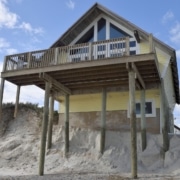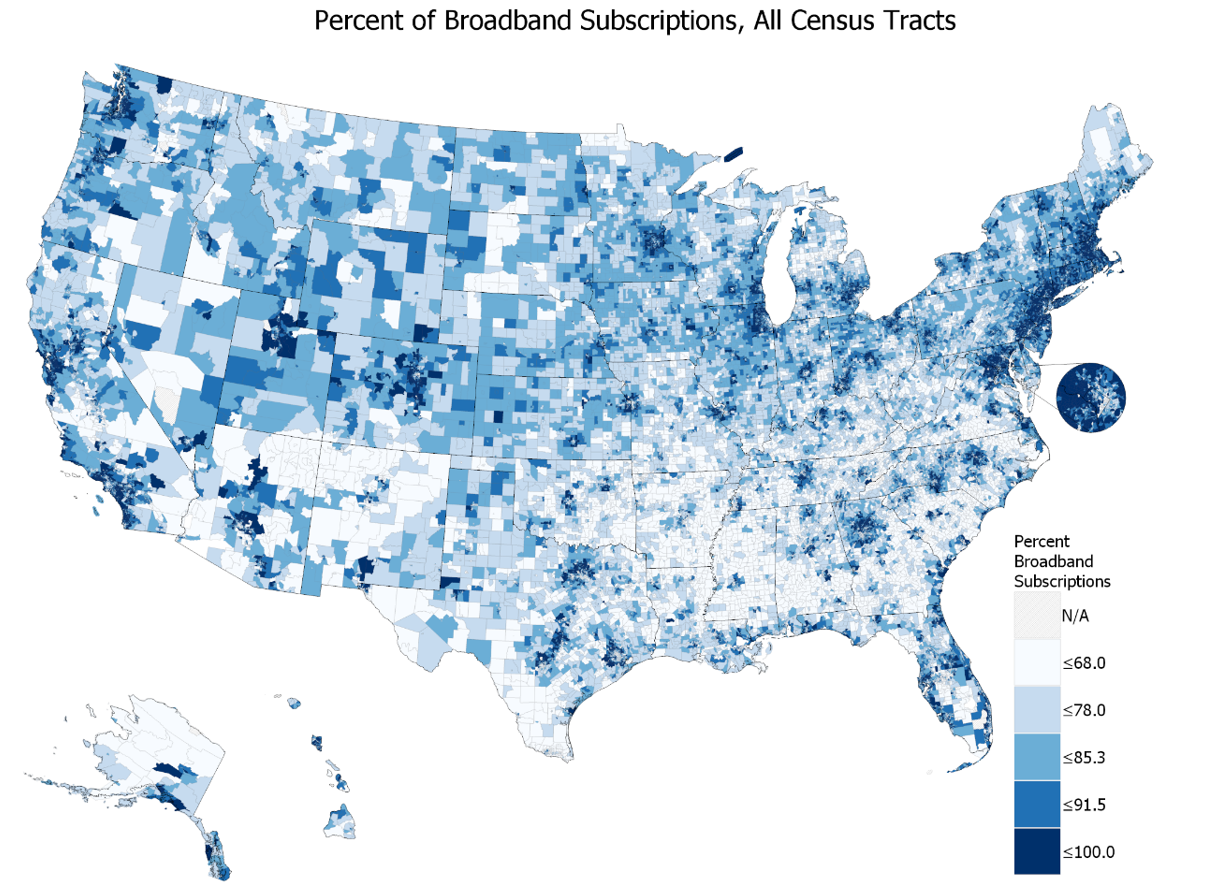HAC News: February 20, 2020
News Formats. pdf
February 20, 2020
Vol. 49, No. 4
February is National African American History Month • Administration’s budget proposes cuts in many housing programs, but not rural rental preservation • CRA comment period extended to April 8 • VA offers per diem funds for veterans’ housing stabilization • HUD joins in proposing rule changes for faith-based organization • FCC launches fund to spread broadband in rural America, legislators concerned • White House releases guide to help local communities tackle the rural opiod and drug crisis • Comments requested on alternative measures of poverty • HUD asks tribes for input on two-year funding notices • CEOs and nonprofit leaders sought for Achieving Excellence program • Appalachia Gets Special Funding. The Black Rural South Deserves It Too • Colorado’s Housing Crisis has Gotten So Bad that Small Towns are Now Building People Homes • The Rural Health Safety Net Under Pressure: Rural Housing Volunerability • The Trump Administration’s Latest Attack on Fair Housing • Where Light Pollution is Seeping into the Rural Night Sky • HAC Seeks is Hiring an Executive Assistant • SAVE THE DATE FOR HAC’S 2020 RURAL HOUSING CONFERENCE! • Need capital for your affordable housing project?
HAC News Formats. pdf
February 20, 2020
Vol. 49, No. 4
February is National African American History Month.
Administration’s budget proposes cuts in many housing programs, but not rural rental preservation.
Like its past budgets, the Administration’s proposal for Fiscal Year 2021 proposes to eliminate many housing programs, including USDA’s Section 502 direct loans for homebuyers, Section 515 and 514/516 loans and grants for rental housing production, and HUD’s CDBG, HOME and SHOP, while supporting renewal of Section 521 Rental Assistance contracts and Section 542 vouchers. Unlike previous versions, the budget proposes to increase USDA’s MPR preservation program to $40 million from $28 million in FY20. It would also fund two repair programs, Section 504 grants for very low-income elderly homeowners and Section 533 Housing Preservation Grants. The House and Senate usually do not follow the budget closely when developing their appropriations legislation for the year.
CRA comment period extended to April 8.
The Federal Deposit Insurance Corporation and the Office of the Comptroller of the Currency have extended the deadline for input on their proposed changes to Community Reinvestment Act regulations. Comments will be due on April 8 rather than on March 9, as originally scheduled.
VA offers per diem funds for veterans’ housing stabilization.
The Department of Veterans Affairs’ Homeless Providers Grant and Per Diem Program will fund nonprofits, state and local governments and tribes to provide per diem payments to facilitate housing stabilization for veterans who are homeless or at risk of becoming homeless. Apply by April 22. For more information, contact Jeffery Quarles, VA, 813-979-3570.
HUD joins in proposing rule changes for faith-based organizations.
Like the proposed rules published by USDA and other agencies in January, HUD’s proposal would delete the requirement for faith-based social service providers to refer beneficiaries to an alternative provider if desired. Faith-based organizations would not be required to provide notices unless secular organizations have the same requirements. Comments to HUD are due April 13. (Comments on the USDA proposal are due February 18.) For more information, contact Richard Youngblood, HUD, 202-402-5958.
FCC launches fund to spread broadband in rural America, legislators concerned.
The Federal Communications Commission adopted rules on January 30 for its new Rural Digital Opportunity Fund. Up to $20.4 billion will be released in two phases. The first phase will begin later this year and target areas wholly without broadband, while the second phase will open to those partially served by broadband. The FCC’s report includes details and the final regulations. Members of the House have written to FCC Chairman Ajit Pai expressing concerns about the RDOF’s coordination with state-level broadband efforts.
White House releases guide to help local communities tackle the rural opioid and drug crisis.
The Rural Community Action Guide aims to educate the public by providing an overview of the challenges rural communities face when addressing prescription opioid misuse and the use of illicit substances. It also showcases localized efforts implemented to help mitigate the impact of substance use disorder. HAC provided the housing chapter for the guide.
Comments requested on alternative measures of poverty.
OMB invites the public to comment by April 14 on questions asked by the Interagency Technical Working Group on Evaluating Alternative Measures of Poverty to help inform its recommendations on producing additional measures of poverty. The Working Group has issued a consensus interim report but has not yet decided whether to recommend development of a new poverty measure. For more information, contact Kerrie Leslie, OMB, 202-395-1093.
HUD asks tribes for input on two-year funding notices.
For recent tribal funding competitions, HUD has experimented with offering two years of appropriations in a single Notice of Funding Availability. It requests comments from tribes by March 13 about this approach, sent to ONAP_ICDBG@hud.gov or by mail to the address provided in the request.
CEOs and nonprofit leaders sought for Achieving Excellence program.
The NeighborWorks Achieving Excellence program, in collaboration with Harvard University’s Kennedy School of Government, offers senior leaders of nonprofits a 16-month program that addresses an organizational challenge or opportunity defined by each participant. Applications are due April 15.
Recent publications and media of interest
- Appalachia Gets Special Funding. The Black Rural South Deserves It Too, an article published by The Nation, makes a case for creating an entity equivalent to the Appalachian Regional Commission for the Southern Black Belt.
- Colorado’s Housing Crisis has Gotten So Bad That Small Towns are Now Building People Homes highlights how local communities are mitigating the housing crisis they are experiencing through partnerships with nonprofits and local developers. School districts and towns are leading the charge but they want to grow sustainably.
- The Rural Health Safety Net Under Pressure: Rural Hospital Vulnerability from the Chartis Center for Rural Health reports that more than 120 rural hospitals have closed since 2010. Based on those trends, the study’s model identified another 453 rural hospitals that are at risk of closing. The states where hospitals are most vulnerable to closure are concentrated in poor regions including rural areas of the lower Great Plains and the Deep South.
- The Trump Administration’s Latest Attack on Fair Housing, a webinar from Fight for Housing Justice, explains the proposed changes to the Affirmatively Furthering Fair Housing regulation, and is posted with other resources on the subject.
- Where Light Pollution is Seeping into the Rural Night Sky uses nighttime map data adjusted for population to show that light pollution is not just an urban problem; it is also prevalent in rural areas that house industrial or manufacturing facilities.
HAC is hiring an Executive Assistant.
The Executive Assistant supports the work of HAC’s CEO and Board of Directors. Based in Washington, DC, the position is a blend of administrative work and project assignments for an early–career professional. The candidate will manage the CEO’s calendar, organize meetings, plan events and make travel arrangements while working on special initiatives and assignments as the candidate grows into a career in policy, program administration or nonprofit management. Email a resume and brief cover letter to jobs@ruralhome.org with “Executive Assistant” in the subject line. Applications will be considered as received. HAC is an equal opportunity employer and lender.
SAVE THE DATE FOR HAC’S 2020 RURAL HOUSING CONFERENCE!
The conference will be held in Washington, DC on December 2-4, 2020 with pre-conference meetings on December 1. The HAC News will announce more details, including registration, as they become available.
Need capital for your affordable housing project? HAC’s loan funds provide low interest rate loans to support single- and multifamily affordable housing projects for low-income rural residents throughout the U.S. and territories. Capital is available for all types of affordable and mixed-income housing projects, including preservation, farmworker, senior and veteran housing. HAC loan funds can be used for pre-development, site acquisition, site development and construction/rehabilitation. Contact HAC’s loan fund staff at hacloanfund@ruralhome.org, 202-842-8600.
Please note: HAC is not able to offer loans to individuals or families. Borrowers must be nonprofit or for-profit organizations or government entities (including tribes).




